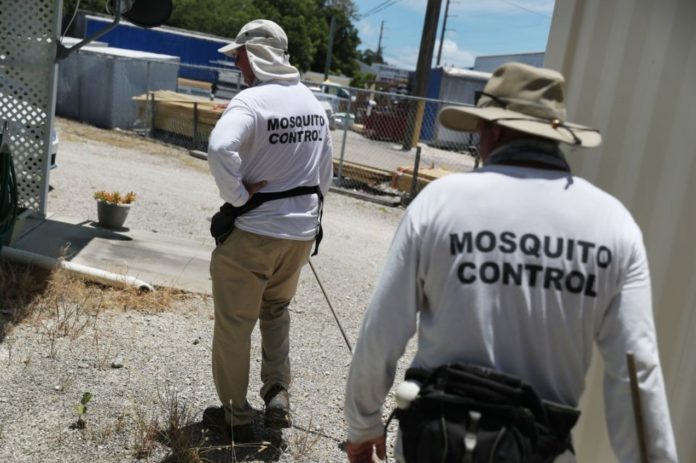A group of researchers discovers a certain association between people who have had dengue and the risk of contagion from Covid-19
Dengue is a disease caused by a virus. It is a common pathology that each year causes many affected. In this sense, it is estimated that some 400 million people fall ill from dengue every year.
Although, dengue is caused by the bite of infected mosquitoes. That is, the mosquito acts as a reservoir for the virus and transmits it to people through the bite. Anyone can be infected, although the largest outbreaks occur in South America, Central America, Southeast Asia and the Caribbean.
- Scientists in Fear of This New Predator From Red Sea Eating Native Species in Mediterranean
- Does This Mean We Stopped Being Animal and Started Being Human Due to ‘Copy Paste’ Errors?
- The One Lifestyle Choice That Could Reduce Your Heart Disease Risk By More Than 22%
- Aging: This Is What Happens Inside Your Body Right After Exercise
- Immune-Boosting Drink that Mimics Fasting to Reduce Fat – Scientists ‘Were Surprised’ By New Findings
Thus, some researchers have found a certain link between dengue and the chances of contagion by Covid-19. Specifically, we are talking about a study carried out in Mancio Lima, a small city located in the Acre stadium in the Brazilian Amazon.
In the aforementioned study, the researchers analyzed blood samples from 1,285 inhabitants, before and after the Covid-19 pandemic. Thus, they determined that people who had dengue are twice as likely to have symptoms in case of SARS-CoV-2 infection.
Synergy between epidemic diseases
This research work has been carried out by the University of São Paulo’s Biomedical Sciences Institute and has been published in the prestigious Clinical Infectious Diseases.
Marcelo Urbano Ferreira, one of the main researchers, points out that “Our results show that the populations most exposed to dengue, possibly owing to socio-demographic factors, are precisely those that most risk falling very sick if they’re infected by SARS-CoV-2. This is an example of what has been called a syndemic (synergic interaction between two epidemic diseases so that one exacerbates the effects of the other).”
He then goes on to explain that “this is an example of what has been called a syndemic [synergic interaction between two epidemic diseases so that one exacerbates the effects of the other]. On one hand, COVID-19 has hindered efforts to control dengue. On the other, the latter appears to increase the risk for those who contract the former.
Linking dengue and Covid-19 risk
To proceed with the study, the researchers analyzed the clinical data of the Covid-19 positive participants. They took into account details such as symptoms or possible health complications from the virus.
With all this, in a first analysis they detected that the previous infection of dengue did not alter the risk of contagion by Covid-19. However, the study did offer conclusive results in another aspect that reinforced the term syndemic.
Apparently, people who have had dengue have a greater tendency to develop the symptoms of Covid-19. In other words, it is common for people who have had dengue to not be asymptomatic Covid-19 carriers.
However, the researchers warn that the causes that link both diseases are not clairvoyant. Specifically, they highlight that it is possible that biological bases interact.
In explanations of the specialists, it may be that the own antibodies created against dengue drive the Covid-19. Another theory that they value is that the social factors typical of certain areas of the world make the population more vulnerable to Covid-19.
In any case, Dr. Ferreria states that “the results evidence the importance of reinforcing both the social distancing measures introduced to contain the spread of SARS-CoV-2 and efforts to control the dengue vector, as the two epidemics are occurring at the same time and affecting the same vulnerable population. This should be getting more attention from the federal government”.
- Scientists in Fear of This New Predator From Red Sea Eating Native Species in Mediterranean
- Does This Mean We Stopped Being Animal and Started Being Human Due to ‘Copy Paste’ Errors?
- The One Lifestyle Choice That Could Reduce Your Heart Disease Risk By More Than 22%
- Aging: This Is What Happens Inside Your Body Right After Exercise
- Immune-Boosting Drink that Mimics Fasting to Reduce Fat – Scientists ‘Were Surprised’ By New Findings
In this regard, the researchers request greater attention from the authorities, to try to find solutions to two epidemics that converge over time in many areas of South America or Asia.
